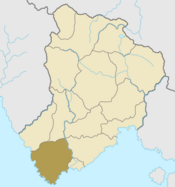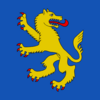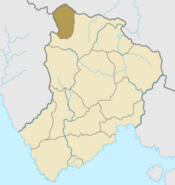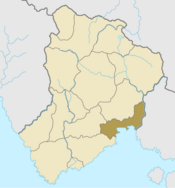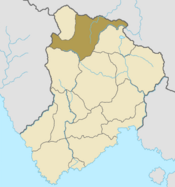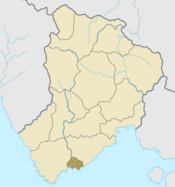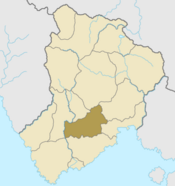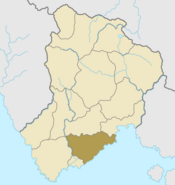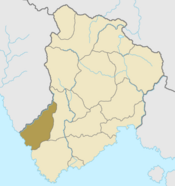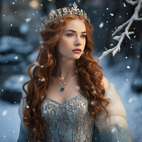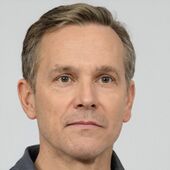Gotneska: Difference between revisions
No edit summary |
(→History: Rewriting my nation's history to better reflect current goals) |
||
| (36 intermediate revisions by 3 users not shown) | |||
| Line 1: | Line 1: | ||
{{Region icon Eurth}} | {{Region icon Eurth}} | ||
{{Infobox country | {{Infobox country | ||
|micronation = | | micronation = <!--yes if a micronation--> | ||
|conventional_long_name = Second Kingdom of | | conventional_long_name = Second Kingdom of Gotanaland<!--Formal or official full name of the country in English--> | ||
|native_name = | | native_name = Annað Konungsríki af Gotneska <br/> Dara Ríocht na Gotalainn <!--Country's name (usually full name) in its native language, hence in italics (double quotemarks)--> | ||
|common_name = | | common_name = Gotneska <!--Common name in English (used for wikilinks, captions, and to produce a default iso3166 code)--> | ||
|status = | | status = <!--Status of country, especially useful for micronations--> | ||
|image_flag = | | image_flag = Flag of {{PAGENAME}}.png <!--e.g. Flag of country.svg--> | ||
| alt_flag = <!--alt text for flag (text shown when pointer hovers over flag)--> | |||
|alt_flag = | | flag_border = <!--set to no to disable border around the flag--> | ||
|flag_border = | | image_flag2 = <!--e.g. Second-flag of country.svg--> | ||
|image_flag2 = | | alt_flag2 = <!--alt text for second flag--> | ||
|alt_flag2 = | | flag2_border = <!--set to no to disable border around the flag--> | ||
|flag2_border = | | image_coat = Middle Coat of Arms of {{PAGENAME}}.png <!--e.g. Coat of arms of country.svg--> | ||
|image_coat = | | alt_coat = <!--alt text for coat of arms--> | ||
| symbol_type = <!--emblem, seal, etc (if not a coat of arms)--> | |||
|alt_coat = | | symbol_footnote = <!--optional reference or footnote for the symbol caption--> | ||
|symbol_type = | | national_motto = Sanngirni Guðs sem við trúum <!--in inverted commas and wikilinked if link exists--> | ||
|symbol_footnote = | | englishmotto = Fairness of God We Believe<!--English language version of motto--> | ||
|national_motto = | | national_anthem = [https://www.youtube.com/watch?v=E9-8ayHETHU Ri undioir fjallinu] <!--in inverted commas and wikilinked if link exists--> | ||
|englishmotto = | | royal_anthem = <!--in inverted commas and wikilinked if link exists--> | ||
|national_anthem = | | other_symbol_type = <!--Use if a further symbol exists, e.g. hymn--> | ||
|royal_anthem = | | other_symbol = | ||
|other_symbol_type = | | image_map = [[File:Map of Gotneska.png|200px]] <!--e.g. LocationCountry.svg--> | ||
|other_symbol = | | loctext = <!--text description of location of country--> | ||
|image_map = | | alt_map = Map of {{PAGENAME}} <!--alt text for map--> | ||
|loctext = | | map_caption = Map of {{PAGENAME}} <!--Caption to place below map--> | ||
|alt_map = | | image_map2 = <!--Another map, if required--> | ||
|map_caption = | | alt_map2 = <!--alt text for second map--> | ||
|image_map2 = | | map_caption2 = <!--Caption to place below second map--> | ||
|alt_map2 = | | capital = '''[[Langueuil]]''' <!--Name of country/territory's capital, wikilinked if link exists--> | ||
|map_caption2 = | | coordinates = <!-- Coordinates for capital, using {{tl|coord}} --> | ||
|capital = | | largest_city = <!--Name of country/territory's largest city. Use "capital" (without quotation marks) if it's the capital.--> | ||
|coordinates = | | largest_settlement_type = <!--Type of settlement if largest settlement not a city--> | ||
|largest_city = | | largest_settlement = <!--Name of largest settlement--> | ||
|largest_settlement_type = <!--Type of settlement if largest settlement not a city--> | | official_languages = [[Götaish Language|Götaish]] <!--Languages recognised in legislation, constitution, etc--> | ||
|largest_settlement = <!--Name of largest settlement--> | | national_languages = {{wp|Irish|Meallángan}} <!--Country/territory-wide languages recognised but not necessarily in country/territory-wide law, etc--> | ||
|official_languages = | | regional_languages = <!--Languages recognised or associated with particular regions within the country/territory--> | ||
|national_languages = {{wp|Irish|Meallángan}} <!--Country/territory-wide languages recognised but not necessarily in country/territory-wide law, etc--> | | languages_type = <!--Use to specify a further type of language, if not official, national or regional--> | ||
|regional_languages = <!--Languages recognised or associated with particular regions within the country/territory--> | | languages = <!--Languages of the further type--> | ||
|languages_type = | | languages_sub = <!--Is this further type of language a sub-item of the previous non-sub type? ("yes" or "no")--> | ||
|languages = | | languages2_type = <!--Another further type of language--> | ||
|languages_sub = | | languages2 = <!--Languages of this second further type--> | ||
|languages2_type = | | languages2_sub = <!--Is the second alternative type of languages a sub-item of the previous non-sub type? ("yes" or "no")--> | ||
|languages2 = | | ethnic_groups = {{plainlist| | ||
|languages2_sub = | * 30% [[Goutian]] | ||
|ethnic_groups = | * 29% Máelláian | ||
* 9% [[Ruaí]] | |||
|ethnic_groups_ref = | * 5% [[Gotana (People)|Gotana]] | ||
|religion = | * 2% [[Nanuvat (People)| Nanuvat]] | ||
|religion_year = | * x% Ateenian | ||
|religion_ref = | * x% Aurivizh | ||
|demonym = | * 2% Densëhars | ||
|government_type = | * x% Ulfan | ||
|leader_title1 = | }} | ||
|leader_name1 = | | ethnic_groups_year = <!--Year of ethnic groups data (if provided)--> | ||
|leader_title2 = | | ethnic_groups_ref = <!--(for any ref/s to associate with ethnic groups data)--> | ||
|leader_name2 = | | religion = <!--Religion--> | ||
|leader_title3 = | | religion_year = <!--Year of religion data (if provided)--> | ||
|leader_name3 = | | religion_ref = <!--(for any ref/s to associate with religion data)--> | ||
|leader_title4 = | | demonym = Gotneskan <!--Term/s describing those associated with the country/territory (e.g. "Belgian" for the country Belgium)--> | ||
|leader_name4 = | | government_type = Constitutional-Parliamentary Monarchy <!--(often a compound multi-wikilinked term, e.g. "Federal semi-presidential constitutional republic", etc)--> | ||
<!--......--> | | leader_title1 = Monarch <!--(for a country, usually the head of state's (wikilinked) title, e.g. "President", "Monarch")--> | ||
|leader_title14 = | | leader_name1 = [[Róisínlaith IV of Gotneska|Róisínlaith IV]] | ||
|leader_name14 = | | leader_title2 = Prime Minister <!--(could be "Vice President", otherwise "Prime Minster", etc, etc)--> | ||
|legislature = | | leader_name2 = [[Askur Karlsson]] | ||
|upper_house = | | leader_title3 = Deputy Prime Minister <!--(could be "Vice President", otherwise "Prime Minster", etc, etc)--> | ||
|lower_house = | | leader_name3 = [[Olfúr Andersson]] | ||
|sovereignty_type = | | leader_title4 = Speaker of the Ríksánas | ||
|sovereignty_note = | | leader_name4 = [[Erik Magnússon]] | ||
|established_event1 = Cordic & Norse Peoples migrate <!--First key event in history of country/territory's status or formation--> | <!--......-->| leader_title14 = <!--(up to 14 distinct leaders may be included)--> | ||
|established_date1 = | | leader_name14 = | ||
|established_event2 = [[Christianization of Gotneska|Christianization]] <!--Second key event--> | | legislature = [[Ríksánas of Gotneska|Ríksánas]] <!--Name of the country/territory's governing body, e.g. "Parliament", "Congress", etc--> | ||
|established_date2 = | | upper_house = <!--Name of governing body's upper house, if given (e.g. "Senate")--> | ||
<!--......--> | | lower_house = <!--Name of governing body's lower house, if given (e.g. "Chamber of Deputies")--> | ||
|established_event3 = | | sovereignty_type = <!--Brief description of country/territory's status ("Independence [from...]", "Autonomous province [of...]", etc)--> | ||
|established_date3 = 550–917 AD | | sovereignty_note = | ||
| | | established_event1 = Cordic & Norse Peoples migrate <!--First key event in history of country/territory's status or formation--> | ||
| | | established_date1 = 3500 to 500 BC<!--Date of first key event--> | ||
|area_rank = | | established_event2 = [[Christianization of Gotneska|Christianization]] <!--Second key event--> | ||
|area = | | established_date2 = 460-1290 AD <!--Date of second key event--> | ||
|area_km2 = 349,700 | <!--......-->| established_event3 = [[Kingdom of Mealláig]] | ||
|area_sq_mi = | | established_date3 = 550–917 AD | ||
|area_footnote = | | established_event4 = [[Battle of Aluiss Creek|Battle of Aluísslækur]] <!--(up to 13 distinct events may be included)--> | ||
|percent_water = | | established_date4 = 21 August 916 | ||
|area_label = | | area_rank = | ||
|area_label2 = | | area = <!--Major area size (in [[Template:convert]] either km2 or sqmi first)--> | ||
|area_data2 = | | area_km2 = 349,700 <!--Major area size (in square km)--> | ||
|population_estimate = 19,747,689 | | area_sq_mi = <!--Area in square mi (requires area_km2)--> | ||
|population_estimate_rank = | | area_footnote = <!--Optional footnote for area--> | ||
|population_estimate_year = 2020 | | percent_water = | ||
|population_census = | | area_label = <!--Label under "Area" (default is "Total")--> | ||
|population_census_year = 2020 | | area_label2 = <!--Label below area_label (optional)--> | ||
|population_density_km2 = 56.5 | | area_data2 = <!--Text after area_label2 (optional)--> | ||
|population_density_sq_mi = | | population_estimate = 19,747,689 | ||
|population_density_rank = | | population_estimate_rank = | ||
|nummembers = | | population_estimate_year = 2020 | ||
|GDP_PPP = | | population_census = | ||
|GDP_PPP_rank = | | population_census_year = 2020 | ||
|GDP_PPP_year = | | population_density_km2 = 56.5 | ||
|GDP_PPP_per_capita = | | population_density_sq_mi = | ||
|GDP_PPP_per_capita_rank = | | population_density_rank = | ||
|GDP_nominal = 276.467 billion | | nummembers = <!--An alternative to population for micronation--> | ||
|GDP_nominal_rank = | | GDP_PPP = <!--(Gross Domestic Product from Purchasing Power Parity)--> | ||
|GDP_nominal_year = 2022 | | GDP_PPP_rank = | ||
|GDP_nominal_per_capita = | | GDP_PPP_year = | ||
|GDP_nominal_per_capita_rank = | | GDP_PPP_per_capita = | ||
|Gini = | | GDP_PPP_per_capita_rank = | ||
|Gini_ref = | | GDP_nominal = 276.467 billion | ||
|Gini_rank = | | GDP_nominal_rank = | ||
|Gini_year = 2020 | | GDP_nominal_year = 2022 | ||
|HDI_year = | | GDP_nominal_per_capita = | ||
|HDI = | | GDP_nominal_per_capita_rank = | ||
|HDI_change = | | Gini = 26.8 <!--(Gini measure of income inequality; input number only; valid values are between 0 and 100)--> | ||
|HDI_rank = | | Gini_ref = <!--(for any ref/s to associate with Gini number)--> | ||
|HDI_ref = | | Gini_rank = | ||
|currency = | | Gini_year = 2020 | ||
|currency_code = | | HDI_year = 2022 <!-- Please use the year to which the data refers, not the publication year--> | ||
|time_zone = | | HDI = 0.85 <!--(Human Development Index; input number only; valid values are between 0 and 1)--> | ||
|utc_offset = | | HDI_change = -0.08 <!--increase/decrease/steady; rank change from previous year--> | ||
|time_zone_DST = | | HDI_rank = 17th | ||
|utc_offset_DST = | | HDI_ref = <!--(for any ref/s to associate with HDI number)--> | ||
|DST_note = | | currency = <!--Name/s of currency/ies used in country/territory--> | ||
|antipodes = | | currency_code = <!--ISO 4217 code/s for currency/ies (each usually three capital letters)--> | ||
|date_format = | | time_zone = [[Time zones of Eurth|WAT]] <!--e.g. GMT, PST, AST, etc, etc (wikilinked if possible)--> | ||
|drives_on = | | utc_offset = +1 <!--in the form "+N", where N is number of hours offset--> | ||
|cctld = | | time_zone_DST = [[Time zones of Eurth|WAST]] <!--Link to DST (Daylight Saving Time) used, otherwise leave empty--> | ||
|iso3166code = | | utc_offset_DST = +2 <!--in the form "+N", where N is number of hours offset--> | ||
|calling_code = | | DST_note = <!--Optional note regarding DST use--> | ||
|patron_saint = | | antipodes = <!--Place/s exactly on the opposite side of the world to country/territory--> | ||
|image_map3 = | | date_format = {{abbr|dd|day}}-{{abbr|mm|month}}-{{abbr|yyyy|year}} ([[Anno Domini|AD]]) <!--all-numeric date format and era, such as [[Common Era|CE]], [[Anno Domini|AD]], [[Hijri year|AH]], etc.; e.g. {{abbr|yyyy|year}}-{{abbr|mm|month}}-{{abbr|dd|day}} ([[Anno Domini|AD]]) --> | ||
|alt_map3 = | | drives_on = Right <!--"right" or "left" (side of road)--> | ||
|footnote_a = | | cctld = .ga <!--Internet country code top-level domain identifier (e.g. [[.br]], [[.de]], etc) | ||
|footnote_b = | |iso3166code = <!--Use to override default from common_name parameter above; omit using "omit".--> | ||
<!--......--> | | calling_code = +25 <!--e.g. [[+1]], [[+531]], [[+44]], etc--> | ||
|footnote_h = | | patron_saint = [[Saint Palmer]] </br> [[Saint Áine]] <!--Use patron_saints for multiple--> | ||
|footnotes = | | image_map3 = <!--Optional third map position, e.g. for use with reference to footnotes below it--> | ||
| alt_map3 = <!--alt text for third map position--> | |||
| footnote_a = <!--For any footnote <sup>a</sup> used above--> | |||
| footnote_b = <!--For any footnote <sup>b</sup> used above--> | |||
<!--......-->| footnote_h = <!--For any footnote <sup>h</sup> used above--> | |||
| footnotes = <!--For any generic non-numbered footnotes--> | |||
}} | }} | ||
{{In use|section}} | {{In use|section}} | ||
The '''Second Kingdom of Gotneska''', commonly known as ''' | The '''Second Kingdom of Gotneska''', commonly known as '''Gotanaland''' (Götaish: '''Konungsríki Gotneska''', and widely known just as '''Gotneska''' and rarely by the '''Kingdom and Commonwealth of Gotneska'''), is a sovereign nation and Constitutional-Parliamentary Monarchy in [[Argis]] on [[Eurth]]. The country shares borders with no-mans-land to the north, [[Aurivizh]] to the east, and No-Man’s Land to the west. Both the eastern border with Aurivizh is made up two rivers the longest one being the [[River Shannon]]. The country has a population of 19.5 million citizens. The political capital and largest city is [[Læniguëuíl|Langueuil]]. | ||
The country is organised as a Constitutional-Parliamentary Monarchy. The [[history of Gotneska]] as a unified kingdom began in the 9th century. Recent events such as the Collapse of the Goutian Empire and the [[Gotneskan Civil War]] (1979-1984) have left a clear mark on the country and its people. Since 2017, the head of state is Queen [[Sarah II]] from the [[House of Rejavi]]. | |||
Modern Gotneska has a mixed economy, with many people earning a modest income. Gotneska is a member of several different international organizations, including the [[Assembled Nations]]. It has applied to become a Partner for Peace membership in [[Tricontinental Defence Treaty Organisation|Trident]]. | |||
== Etymology == | |||
The name "Gotneska" is a unique and mystical name with roots in ancient mythology. Its etymology can be traced back to the goddess [[Gótana|Gotana]], a deity revered in a mythical civilization known for its deep connection with nature and spirituality. | |||
The name "Gotneska" is a derivative of the goddess's name, reflecting the reverence and admiration for Gotana in the civilization where this name originated. It signifies a deep spiritual connection and an affinity for the natural world. Those bestowed with the name "Gotneska" are often believed to possess qualities associated with the goddess herself, such as nurturing, strength, and a deep connection to the earth. | |||
Over time, the name "Gotneska" has come to represent individuals who exude a sense of abundance, protection, and profound spirituality. It embodies a unique combination of strength and gentleness, making it a name that commands respect and carries an air of mystique. | |||
(WIP. How is the name pronounced? How is the name translated into other languages?) | |||
== History == | |||
{{main|History of Gotneska}}{{Under construction}} | |||
{{ | == Geography == | ||
Gotneska is located on the western half of the yeetland peninsula. It is border by [[Aurivizh]] to the southeast, and [[Ulfheimr]] to the west. Most of the nation is south of the | {{main|Geography of Gotneska}} | ||
Gotneska is located on the western half of the yeetland peninsula. It is border by [[Aurivizh]] to the southeast, and [[Ulfheimr]] to the west. Most of the nation is south of the Argic Circle, but a small portion lays north of it, one of the largest settlements lays 10 km North of the city. The nation has serval small islands off its coast. The country lies between latitudes 59 and 70°N, and longitudes 14 and 10°W. The most notable topographical features of the country are the [[Kendovstrunmahhe Mountains]], [[Aurum Coast]]. The Gotneskan Kendovstrunmahhes are located mainly within the [[Járnger Ðr Province|Járnger Ðr]], the highest point is [[Skaðifjall]], at {{convert|5785|m|ft}}. And the lowest point would be sea level at 0 m. Gotneska also has five major rivers, two of which help create it borders. | |||
<gallery> | <gallery> | ||
File:Mount Robson panorama (cropped).jpg| Skaðifjall, it has the highest peak in the nation | File:Mount Robson panorama (cropped).jpg| Skaðifjall, it has the highest peak in the nation. | ||
File:Cañón Miles, Yukón, Canadá, 2017-08-26, DD 130-132 PAN.jpg| The River Bóanau, Located in [[Aibhneacha Móra National Park | Aibhneacha Móra NP]]. | File:Cañón Miles, Yukón, Canadá, 2017-08-26, DD 130-132 PAN.jpg| The River Bóanau, Located in [[Aibhneacha Móra National Park | Aibhneacha Móra NP]]. | ||
File:Funny River Fire Alaska.jpg| One of many cleansing forest fires in the Taiga. | File:Funny River Fire Alaska.jpg| One of many cleansing forest fires in the Taiga. | ||
| Line 161: | Line 178: | ||
</gallery> | </gallery> | ||
=== Administrative divisions === | |||
===Administrative divisions=== | |||
The bureaucratic administration of Gotneksa is divided into four basic levels. Following the {{ | The bureaucratic administration of Gotneksa is divided into four basic levels. Following the {{wp|Nomenclature of Territorial Units for Statistics}} (NUTS), these levels are: country, region (NUTS-1), province (NUTS-2), and municipality (LAU). Below the national government, there are 4 regions, further divided into 16 provinces and then 42 counties. | ||
{| style= | {| style='background:none' cellspacing='2' | ||
| | | | ||
{| class= | {| class='sortable wikitable' style='text-align:center' | ||
|- style= | |- style='text-align:left' | ||
! style="width:120px | ! style="width:120px"| Location | ||
! style="width:40px | ! style="width:40px" class="unsortable"| Flag | ||
! style="width:110px | ! style="width:110px"| Province | ||
! style="width:120px | ! style="width:120px"| Capital (Pop.) | ||
! style="width:100px | ! style="width:100px"| Largest city (Pop.) | ||
! style="width:60px | ! style="width:60px"| Total area | ||
! style="width:90px | ! style="width:90px"| Population | ||
|- | |- | ||
|- | |- | ||
! [[File:Map of Austurgothia.png| | ! [[File:Map of Austurgothia.png|175px|frameless]] | ||
! | ! [[File:Royal Banner of Austurgothia.png|100px]] | ||
! [[Province of Austurgothia|Austurgothia]] (East Gothia) | ! [[Province of Austurgothia|Austurgothia]] (East Gothia) | ||
! [[Sækjahöfn]] | ! [[Sækjahöfn]] | ||
| Line 197: | Line 203: | ||
! | ! | ||
|- | |- | ||
! [[|175px|frameless]] | |||
! | |||
! [[Province of Dálfiannach|Dálfiannach]] | |||
! | |||
! | |||
! | |||
! | |||
|- | |||
! [[File:Map of Eldurinnaq.png|175px|frameless]] | |||
! [[File:Flag of Eldurinnaq.png|100px]] | |||
! [[Province of Eldurinnaq|Eldurinnaq]] (Eldurland) | |||
! colspan='2'| [[Kivgiq]] | |||
! | ! | ||
! | |||
|- | |||
! [[File:Mahoney Province.png|175px|frameless]] | |||
! | ! | ||
! [[Mahoney Province|Mahoney]] | ! [[Mahoney Province|Mahoney]] | ||
| Line 208: | Line 229: | ||
! | ! | ||
! [[Province of Fjallannland|Fjallannland]] | ! [[Province of Fjallannland|Fjallannland]] | ||
! colspan= | ! colspan='2'| | ||
! | ! | ||
! | ! | ||
|- | |- | ||
! [[File:Map_of_Járnger_Ðr_Province.png| | ! [[File:Map_of_Járnger_Ðr_Province.png|175px|frameless]] | ||
! [[File:Járnger Ðr Province.png|100px]] | ! [[File:Járnger Ðr Province.png|100px]] | ||
! [[Járnger Ðr Province|Járnger Ðr]] | ! [[Járnger Ðr Province|Járnger Ðr]] | ||
! colspan= | ! colspan='2'| [[Jörðlæk]] | ||
! | ! | ||
! 689,389 | ! 689,389 | ||
|- | |- | ||
! [[File:Map of The Province of Lænighríh.png| | ! [[File:Map of The Province of Lænighríh.png|175px|frameless]] | ||
! | ! | ||
! [[Province of Lænighríh|Lænighríh]] | ! [[Province of Lænighríh|Lænighríh]] | ||
! colspan= | ! colspan='2'| [[Læniguëuíl|Langueuil]] | ||
! | |||
! | |||
|- | |||
! [[File:Map of Rítuath Province.png|175px|frameless]] | |||
! | |||
! [[Rituath Province|Rituath]] | |||
! | |||
! | |||
! | ! | ||
! | ! | ||
|- | |- | ||
! [[File:Map of the Rídearg Province.png| | ! [[File:Map of the Rídearg Province.png|175px|frameless]] | ||
! [[File:Celtic Shamrock Flag.png|100px]] | ! [[File:Celtic Shamrock Flag.png|100px]] | ||
! [[Rídearg Province|Rídearg]] | ! [[Rídearg Province|Rídearg]] | ||
| Line 232: | Line 261: | ||
! | ! | ||
! | ! | ||
! | !4,430,904 | ||
|- | |- | ||
! [[File:Map of The Province of Vesturgothia.png| | ! [[File:Map of The Province of Vesturgothia.png|175px|frameless]] | ||
! | ! | ||
! [[Province of Vesturgothia|Vesturgothia]] (West Gothia) | ! [[Province of Vesturgothia|Vesturgothia]] (West Gothia) | ||
! colspan= | ! colspan='2'| [[Rauðnunger]] | ||
! | ! | ||
! | ! | ||
|- | |- | ||
|- class="sortbottom" style="text-align:right" | |- class="sortbottom" style="text-align:right" | ||
! colspan= | ! colspan='1'| Total | ||
! colspan= | ! colspan='4'| [[Gotneska]] | ||
! {{convert|349,700|km2|sqmi|abbr=on|sortable=on}} | ! {{convert|349,700|km2|sqmi|abbr=on|sortable=on}} | ||
! 19,747,689 | ! 19,747,689 | ||
|} | |} | ||
==Politics== | == Politics == | ||
=== Government === | |||
===Government=== | |||
{{multiple image | {{multiple image | ||
| title | | title = Big Four of Gotneska | ||
| align | | align = right | ||
| total_width | | total_width = 300 | ||
| perrow | | perrow = 2/2 | ||
| caption_align = center | | caption_align = center | ||
| image_style | | image_style = border:none; | ||
| image1 | | image1 = Queen Sarah II of Gotneska.png | ||
| caption1 | | caption1 = [[Sarah II]]<br/>{{small|[[Monarchy of Gotneska|Queen of Gotneska]]}} | ||
| image2 | | image2 = Alexander_Graham.jpg | ||
| caption2 | | caption2 = [[Askur Karlsson]]<br/>{{small|Prime Minister of Gotneska}} | ||
| image3 | | image3 = Liam Ericsson.jpg | ||
| caption3 | | caption3 = [[Erik Magnússon]]<br/>{{small|Speaker of the Riksdag}} | ||
| image4 | | image4 = Prince Karl of Vesturgothia.jpg | ||
| caption4 | | caption4 = [[Olfúr Andersson]]<br/>{{small|Deputy Prime Minister}} | ||
}} | }} | ||
Politics in Gotneska | Politics in Gotneska operates under a framework laid out in the Constitution. First written in 1849, it establishes a sovereign state in the form of a constitutional monarchy, with a representative parliamentary system. The monarch officially retains executive power and presides over the Council of State (privy council). The monarch has full executive power which they can use to a limit some other things they can are such as the formal appointment and dismissal of the Prime Minister and other Government ministers. The Monarch is not answerable for his or her actions, and their person is sacrosanct. Hereditary monarch Queen [[Sarah II]] has been head of state since 10 October 2017. She is supported by a Prime Minister, currently [[Askur Karlsson]]. Two other important political figures are Speaker of the Riksdag [[Erik Magnússon]] and Deputy Prime Minister [[Olfúr Andersson]]. | ||
(WIP. Explain the Riksdag. Who rules, how, and for how long? Political parties. What levels of government exist? How about the local level? Who makes the laws? Who deals out your justice? Which government services exist? What is the name of your police?) | |||
=== | === Foreign relations === | ||
== | (WIP. Foreign affairs, alliances, membership of international organisations.) | ||
{| class="wikitable sortable collapsible" | |||
! width=120px|Country/Union/Autonomous District | |||
! Status | |||
! State of relations | |||
! Mutual Embassies | |||
! Formal Relations Began | |||
! Gotneskan Ambassador | |||
! Foreign Ambassador | |||
|- | |||
| {{flag|Garindina}} (Gærindína) | |||
| bgcolor=#ACE1AF|Friendly | |||
| | |||
| bgcolor=#ACE1AF| TBD, ''[[Garindina]]'' - TBA, ''Gotneska'' | |||
| TBD | |||
| [[Addie Ui Glasney]] | |||
| Anna Sorokina | |||
|- | |||
| {{flag|Orioni}} | |||
| bgcolor=#ACE1AF|Friendly | |||
| | |||
| bgcolor=#ACE1AF| TBD, ''[[Orioni]]'' - TBA, ''Gotneska'' | |||
| tbd | |||
| | |||
| Zema Ephraim ina Melkamu | |||
|- | |||
| {{flag|Poja}} (Pøyja) | |||
| bgcolor=#ACE1AF|Friendly | |||
| Members of [[Council of the Democratically-aligned nations of Argis|CNADC]] and [[Tricontinental Defence Treaty Organisation|TRIDENT]] | |||
| bgcolor=#ACE1AF| TBD, ''[[Poja]]'' - TBA, ''Gotneska'' | |||
| 11 August 1902 | |||
| | |||
| | |||
|- | |||
|} | |||
=== | === Military === | ||
(WIP. How are the armed forces organised?) | |||
== | == Economy == | ||
Modern Gotneska has a mixed economy that is primarily service-based. It has a strong $economicSectorName sector, with some important international companies having a presence there. Additionally, the country has developed a thriving technology sector, with a strong focus on renewable energy. Tourism is also a major contributor to the economy, as its provinces are known for their rich cultural heritage, stunning landscapes, and historical sites. Agriculture continues to play a role in the economies of rural areas, with crops such as potatoes, barley, and livestock being raised for both domestic consumption and export. Fishing and seafood production is also a significant industry in coastal provinces. Additionally, extractive industries contribute to the economies of $provinceName and $provinceName. | |||
(WIP. Employment. Exports and imports. International partners. Currency. Energy. Transportation. Science & technology. Unemployment numbers. Tourism. Media.) | |||
== | == Demographics == | ||
=== Religion === | |||
{{Pie chart | {{Pie chart | ||
| Line 300: | Line 360: | ||
| caption = Religion in Gotneska | | caption = Religion in Gotneska | ||
| other = | | other = | ||
| label1 = [[Catholic Church]] | | label1 = [[Catholic Church (Eurth)|Catholic]] | ||
| value1 = | | value1 = 65 | ||
| color1 = Blue | | color1 = Blue | ||
| label2 = {{wp|Protestant}} | | label2 = {{wp|Protestant}} | ||
| value2 = | | value2 = 5 | ||
| color2 = Purple | | color2 = Purple | ||
| label3 = [[ | | label3 = [[Vjoldinism]] | ||
| value3 = 7 | | value3 = 7 | ||
| color3 = Grey | | color3 = Grey | ||
| label4 = | | label4 = {{wpl|Irish Mythology|Cordic paganism}} | ||
| value4 = | | value4 = 6 | ||
| color4 = Green | | color4 = Green | ||
| label5 = {{ | | label5 = {{wp|Old Norse Paganism|Old Norse}} | ||
| value5 = | | value5 = 16 | ||
| color5 = Bleck | | color5 = Bleck | ||
}} | }} | ||
| Line 319: | Line 379: | ||
Religious freedom is constitutionally provided for in Gotneska, and the country's constitution had been {{wp|secular}} from 1969 to 1973. {{wp|Christianity}} is the predominant religion, and while Gotneska remains a predominantly Catholic country, the percentage of the population who identified as Catholic on the census has fallen sharply from 87.2 percent in the 2011 census to 84.3 percent in the most recent 2019 census. Other results from the 2019 census are: 6.7% Protestant, 5.2% Neopagan, and 4.2% as having no religion. | Religious freedom is constitutionally provided for in Gotneska, and the country's constitution had been {{wp|secular}} from 1969 to 1973. {{wp|Christianity}} is the predominant religion, and while Gotneska remains a predominantly Catholic country, the percentage of the population who identified as Catholic on the census has fallen sharply from 87.2 percent in the 2011 census to 84.3 percent in the most recent 2019 census. Other results from the 2019 census are: 6.7% Protestant, 5.2% Neopagan, and 4.2% as having no religion. | ||
Gotneska's patron saints are [[Saint Áine of Gotneska|Saint Áine]], [[Saint Palmer]], [[Saint Brendan]] and [[Saint Arvid | Gotneska's patron saints are [[Saint Áine of Gotneska|Saint Áine]], [[Saint Palmer]], [[Saint Brendan]] and [[Saint Arvid]]. Saint Áine & Palmer are the only ones commonly recognised as the patron saint. Saint Áine's Day is celebrated on 18 March in Gotneska and abroad as the Gotneskan national day. Will Saint Palmer's Day is celebrated on 2nd April. Both days have parades and other celebrations. | ||
==Culture== | == Culture == | ||
{{main|Famous Gotneskan’s}} | |||
=== Music === | |||
Most Gotneskan music is related to {{wp|Celtic|Cordic}} or TBD name, and includes {{wp|folk}} and {{wp|pop}} traditions. Notable Gotneskan music acts include medieval music group [[Nafoíne Guth]], and the [[Cordic Mná|Cordic Women]]. Famous singers from this group include; [[Gráinne Ó Gallchobhair]]. | Most Gotneskan music is related to {{wp|Celtic|Cordic}} or TBD name, and includes {{wp|folk}} and {{wp|pop}} traditions. Notable Gotneskan music acts include medieval music group [[Nafoíne Guth]], and the [[Cordic Mná|Cordic Women]]. Famous singers from this group include; [[Gráinne Ó Gallchobhair]]. | ||
=== Cuisine === | |||
Popular everyday beverages among the Gotneskan’s include {{wp|tea}} and {{wp|coffee}}. Alcoholic drinks associated with Gotneska include wurld-famous [[Bronaugh]], which is an amber ale/stout that originated in the brewery of Patrick Bronaugh at St. Áine's Gate in [[Sionainn]]. | Popular everyday beverages among the Gotneskan’s include {{wp|tea}} and {{wp|coffee}}. Alcoholic drinks associated with Gotneska include wurld-famous [[Bronaugh]], which is an amber ale/stout that originated in the brewery of Patrick Bronaugh at St. Áine's Gate in [[Sionainn]]. | ||
=== Sports === | |||
The most popular team sports in Gotneska are {{wp| | The most popular team sports in Gotneska are {{wp|Rugby}}, {{wp|Gaelic Football|Geltic Football}}, and finally {{wp|Football}}. Rugby is by far the more popular and pretty successful in international competition. Football is second when it comes to international wins only behind Rugby which has been able to keep a pretty consistent ranking in the Top 10. Geltic Football is the most successful in international competition, but unlike Rugby and Football there is not World Cup competition. | ||
{{Template:Gotneska topics}} | {{Template:Gotneska topics}} | ||
[[Category:Gotneska]] | [[Category:Gotneska]] | ||
{{Eurth}} | |||
|} | |||
Latest revision as of 21:51, 19 December 2024
Second Kingdom of Gotanaland Annað Konungsríki af Gotneska Dara Ríocht na Gotalainn | |
|---|---|
| Motto: Sanngirni Guðs sem við trúum Fairness of God We Believe | |
| Anthem: Ri undioir fjallinu | |
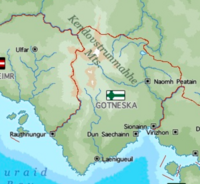 Map of Gotneska | |
| Capital | Langueuil |
| Official languages | Götaish |
| Recognised national languages | Meallángan |
| Ethnic groups | |
| Demonym(s) | Gotneskan |
| Government | Constitutional-Parliamentary Monarchy |
• Monarch | Róisínlaith IV |
• Prime Minister | Askur Karlsson |
• Deputy Prime Minister | Olfúr Andersson |
• Speaker of the Ríksánas | Erik Magnússon |
| Legislature | Ríksánas |
| Establishment | |
• Cordic & Norse Peoples migrate | 3500 to 500 BC |
| 460-1290 AD | |
| 550–917 AD | |
| 21 August 916 | |
| Area | |
• | 349,700 km2 (135,000 sq mi) |
| Population | |
• 2020 estimate | 19,747,689 |
• Density | 56.5/km2 (146.3/sq mi) |
| GDP (nominal) | 2022 estimate |
• Total | 276.467 billion |
| Gini (2020) | 26.8 low |
| HDI (2022) | 0.85 very high (17th) |
| Time zone | UTC+1 (WAT) |
• Summer (DST) | UTC+2 (WAST) |
| Date format | dd-mm-yyyy (AD) |
| Driving side | right |
| Calling code | +25 |
| Internet TLD | .ga |
This section is actively undergoing a major edit for a short while. To help avoid edit conflicts, please do not edit this section while this message is displayed. This page was last edited at 21:51, 19 December 2024 (UTC) (11 days ago). Please remove this template if this page hasn't been edited in several hours. If you are the editor who added this template, please be sure to remove it or replace it with {{Under construction}} between editing sessions. |
The Second Kingdom of Gotneska, commonly known as Gotanaland (Götaish: Konungsríki Gotneska, and widely known just as Gotneska and rarely by the Kingdom and Commonwealth of Gotneska), is a sovereign nation and Constitutional-Parliamentary Monarchy in Argis on Eurth. The country shares borders with no-mans-land to the north, Aurivizh to the east, and No-Man’s Land to the west. Both the eastern border with Aurivizh is made up two rivers the longest one being the River Shannon. The country has a population of 19.5 million citizens. The political capital and largest city is Langueuil.
The country is organised as a Constitutional-Parliamentary Monarchy. The history of Gotneska as a unified kingdom began in the 9th century. Recent events such as the Collapse of the Goutian Empire and the Gotneskan Civil War (1979-1984) have left a clear mark on the country and its people. Since 2017, the head of state is Queen Sarah II from the House of Rejavi.
Modern Gotneska has a mixed economy, with many people earning a modest income. Gotneska is a member of several different international organizations, including the Assembled Nations. It has applied to become a Partner for Peace membership in Trident.
Etymology
The name "Gotneska" is a unique and mystical name with roots in ancient mythology. Its etymology can be traced back to the goddess Gotana, a deity revered in a mythical civilization known for its deep connection with nature and spirituality.
The name "Gotneska" is a derivative of the goddess's name, reflecting the reverence and admiration for Gotana in the civilization where this name originated. It signifies a deep spiritual connection and an affinity for the natural world. Those bestowed with the name "Gotneska" are often believed to possess qualities associated with the goddess herself, such as nurturing, strength, and a deep connection to the earth.
Over time, the name "Gotneska" has come to represent individuals who exude a sense of abundance, protection, and profound spirituality. It embodies a unique combination of strength and gentleness, making it a name that commands respect and carries an air of mystique.
(WIP. How is the name pronounced? How is the name translated into other languages?)
History
This article or section is in the process of an expansion or major restructuring. You are welcome to assist in its construction by editing it as well. If this article or section has not been edited in several days, please remove this template. If you are the editor who added this template and you are actively editing, please be sure to replace this template with {{in use}} during the active editing session. Click on the link for template parameters to use.
This article was last edited by Gotneska (talk | contribs) 11 days ago. (Update timer) |
Geography
Gotneska is located on the western half of the yeetland peninsula. It is border by Aurivizh to the southeast, and Ulfheimr to the west. Most of the nation is south of the Argic Circle, but a small portion lays north of it, one of the largest settlements lays 10 km North of the city. The nation has serval small islands off its coast. The country lies between latitudes 59 and 70°N, and longitudes 14 and 10°W. The most notable topographical features of the country are the Kendovstrunmahhe Mountains, Aurum Coast. The Gotneskan Kendovstrunmahhes are located mainly within the Járnger Ðr, the highest point is Skaðifjall, at 5,785 metres (18,980 ft). And the lowest point would be sea level at 0 m. Gotneska also has five major rivers, two of which help create it borders.
The River Bóanau, Located in Aibhneacha Móra NP.
Aerial view of Saint Áine Monastery, Cordic Isles.
Administrative divisions
The bureaucratic administration of Gotneksa is divided into four basic levels. Following the Nomenclature of Territorial Units for Statistics (NUTS), these levels are: country, region (NUTS-1), province (NUTS-2), and municipality (LAU). Below the national government, there are 4 regions, further divided into 16 provinces and then 42 counties.
PoliticsGovernmentBig Four of Gotneska Politics in Gotneska operates under a framework laid out in the Constitution. First written in 1849, it establishes a sovereign state in the form of a constitutional monarchy, with a representative parliamentary system. The monarch officially retains executive power and presides over the Council of State (privy council). The monarch has full executive power which they can use to a limit some other things they can are such as the formal appointment and dismissal of the Prime Minister and other Government ministers. The Monarch is not answerable for his or her actions, and their person is sacrosanct. Hereditary monarch Queen Sarah II has been head of state since 10 October 2017. She is supported by a Prime Minister, currently Askur Karlsson. Two other important political figures are Speaker of the Riksdag Erik Magnússon and Deputy Prime Minister Olfúr Andersson. (WIP. Explain the Riksdag. Who rules, how, and for how long? Political parties. What levels of government exist? How about the local level? Who makes the laws? Who deals out your justice? Which government services exist? What is the name of your police?) Foreign relations(WIP. Foreign affairs, alliances, membership of international organisations.)
Military(WIP. How are the armed forces organised?) EconomyModern Gotneska has a mixed economy that is primarily service-based. It has a strong $economicSectorName sector, with some important international companies having a presence there. Additionally, the country has developed a thriving technology sector, with a strong focus on renewable energy. Tourism is also a major contributor to the economy, as its provinces are known for their rich cultural heritage, stunning landscapes, and historical sites. Agriculture continues to play a role in the economies of rural areas, with crops such as potatoes, barley, and livestock being raised for both domestic consumption and export. Fishing and seafood production is also a significant industry in coastal provinces. Additionally, extractive industries contribute to the economies of $provinceName and $provinceName. (WIP. Employment. Exports and imports. International partners. Currency. Energy. Transportation. Science & technology. Unemployment numbers. Tourism. Media.) DemographicsReligionReligion in Gotneska Catholic (65%) Protestant (5%) Vjoldinism (7%) Cordic paganism (6%) Old Norse (16%)
Religious freedom is constitutionally provided for in Gotneska, and the country's constitution had been secular from 1969 to 1973. Christianity is the predominant religion, and while Gotneska remains a predominantly Catholic country, the percentage of the population who identified as Catholic on the census has fallen sharply from 87.2 percent in the 2011 census to 84.3 percent in the most recent 2019 census. Other results from the 2019 census are: 6.7% Protestant, 5.2% Neopagan, and 4.2% as having no religion. Gotneska's patron saints are Saint Áine, Saint Palmer, Saint Brendan and Saint Arvid. Saint Áine & Palmer are the only ones commonly recognised as the patron saint. Saint Áine's Day is celebrated on 18 March in Gotneska and abroad as the Gotneskan national day. Will Saint Palmer's Day is celebrated on 2nd April. Both days have parades and other celebrations. CultureMusicMost Gotneskan music is related to Cordic or TBD name, and includes folk and pop traditions. Notable Gotneskan music acts include medieval music group Nafoíne Guth, and the Cordic Women. Famous singers from this group include; Gráinne Ó Gallchobhair. CuisinePopular everyday beverages among the Gotneskan’s include tea and coffee. Alcoholic drinks associated with Gotneska include wurld-famous Bronaugh, which is an amber ale/stout that originated in the brewery of Patrick Bronaugh at St. Áine's Gate in Sionainn. SportsThe most popular team sports in Gotneska are Rugby, Geltic Football, and finally Football. Rugby is by far the more popular and pretty successful in international competition. Football is second when it comes to international wins only behind Rugby which has been able to keep a pretty consistent ranking in the Top 10. Geltic Football is the most successful in international competition, but unlike Rugby and Football there is not World Cup competition. | ||||||||||||||||||||||||||||||||||||||||||||||||||||||||||||||||||||||||||||||||||||||||||||||||||||||||||||||||







